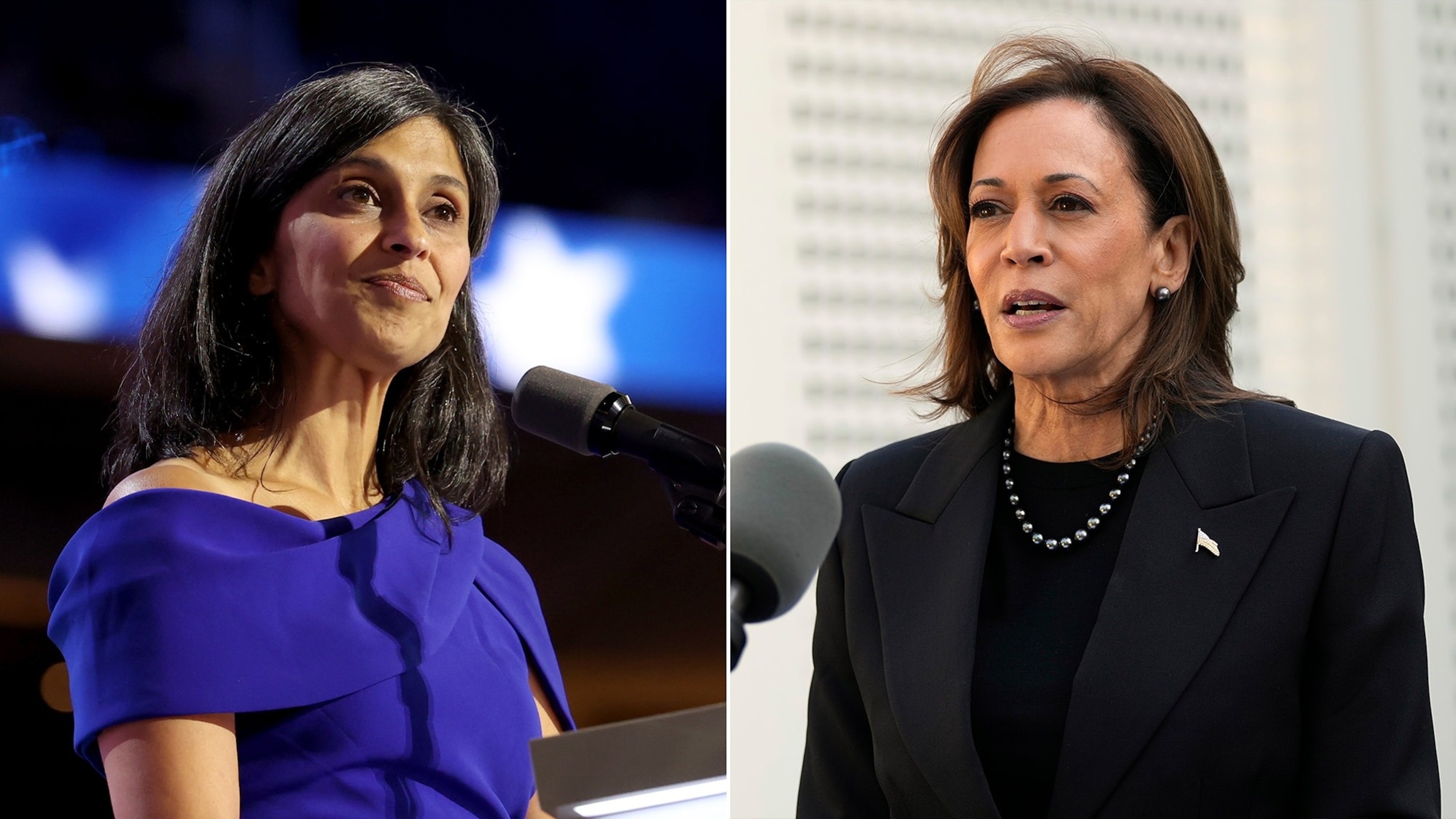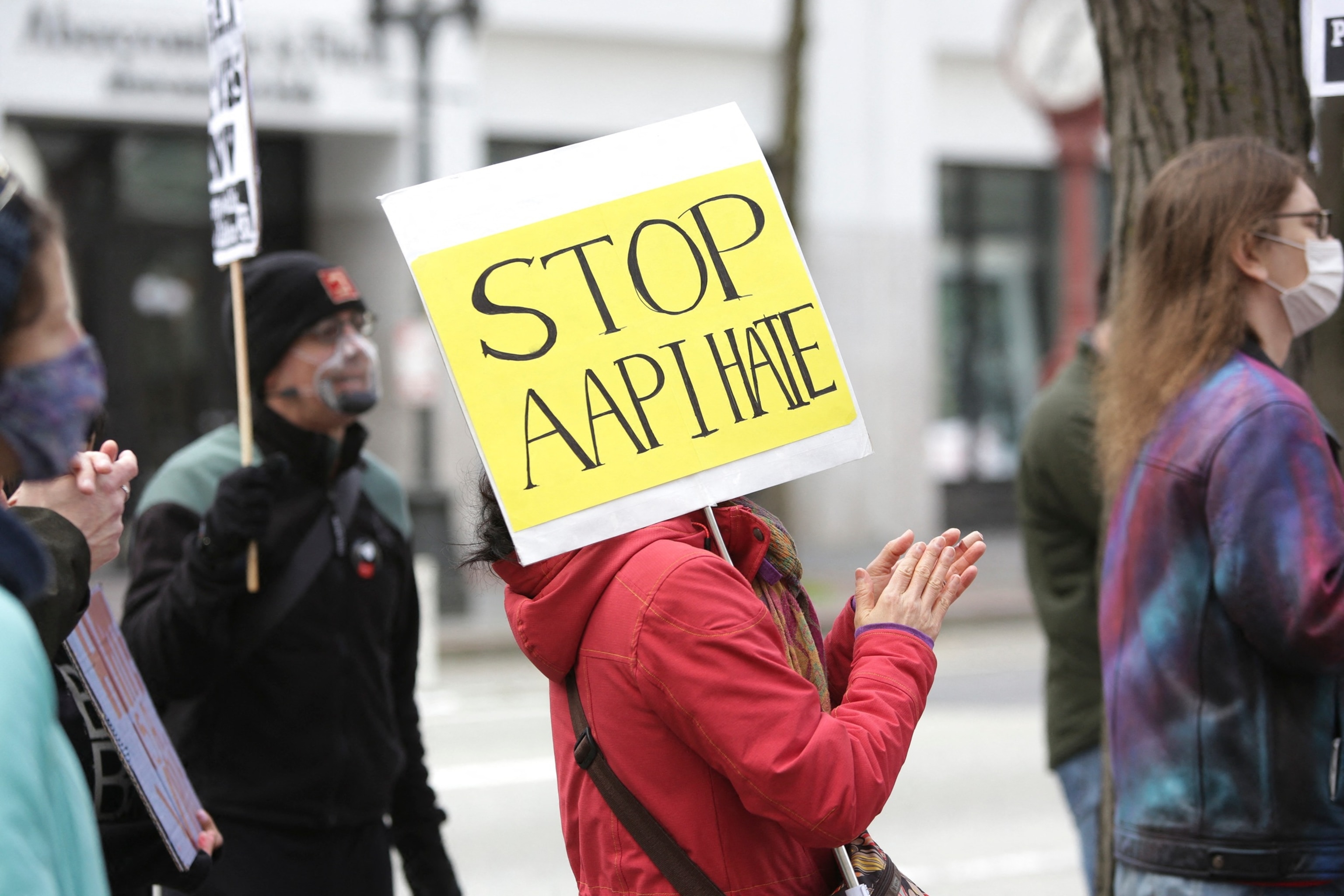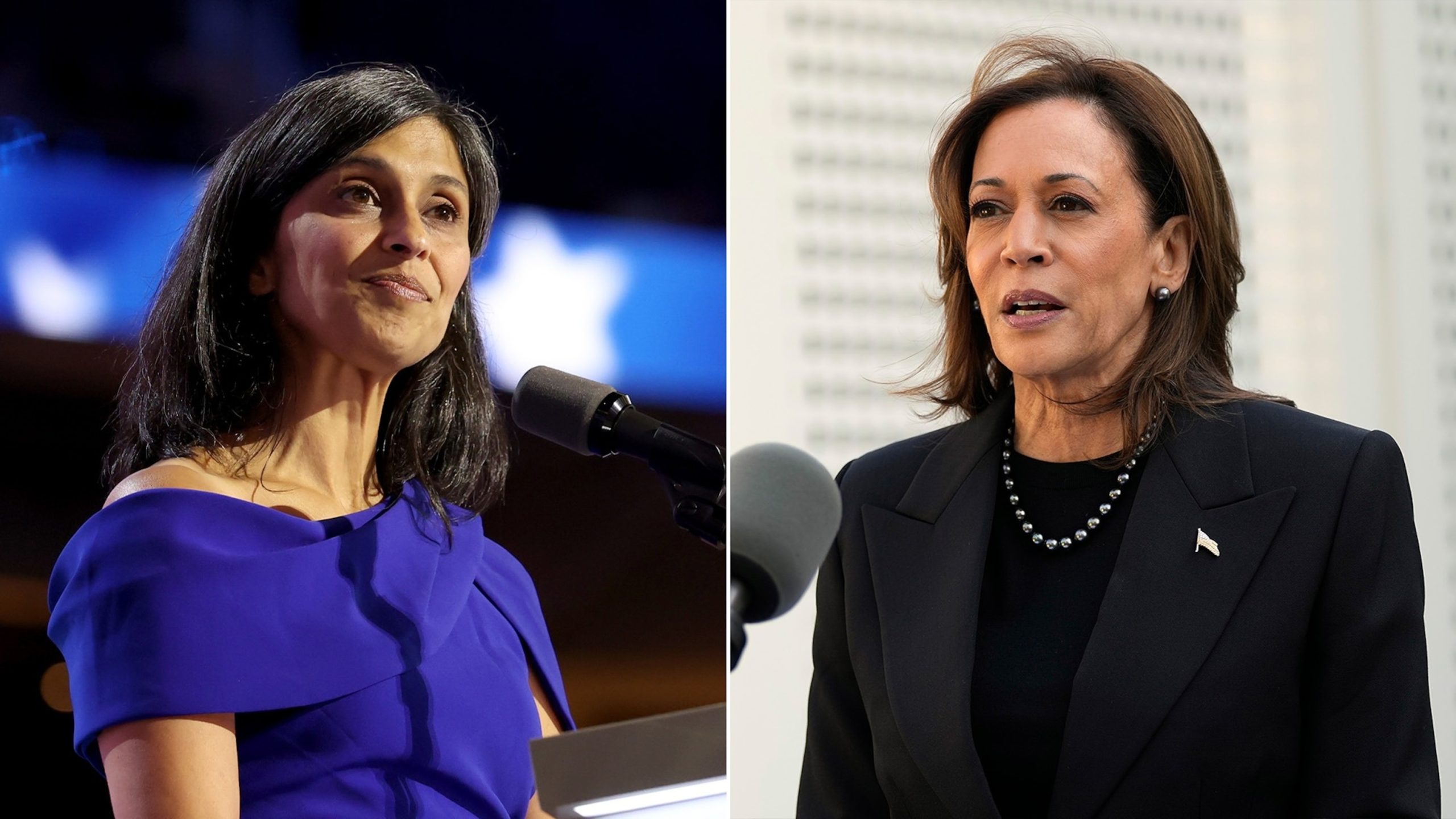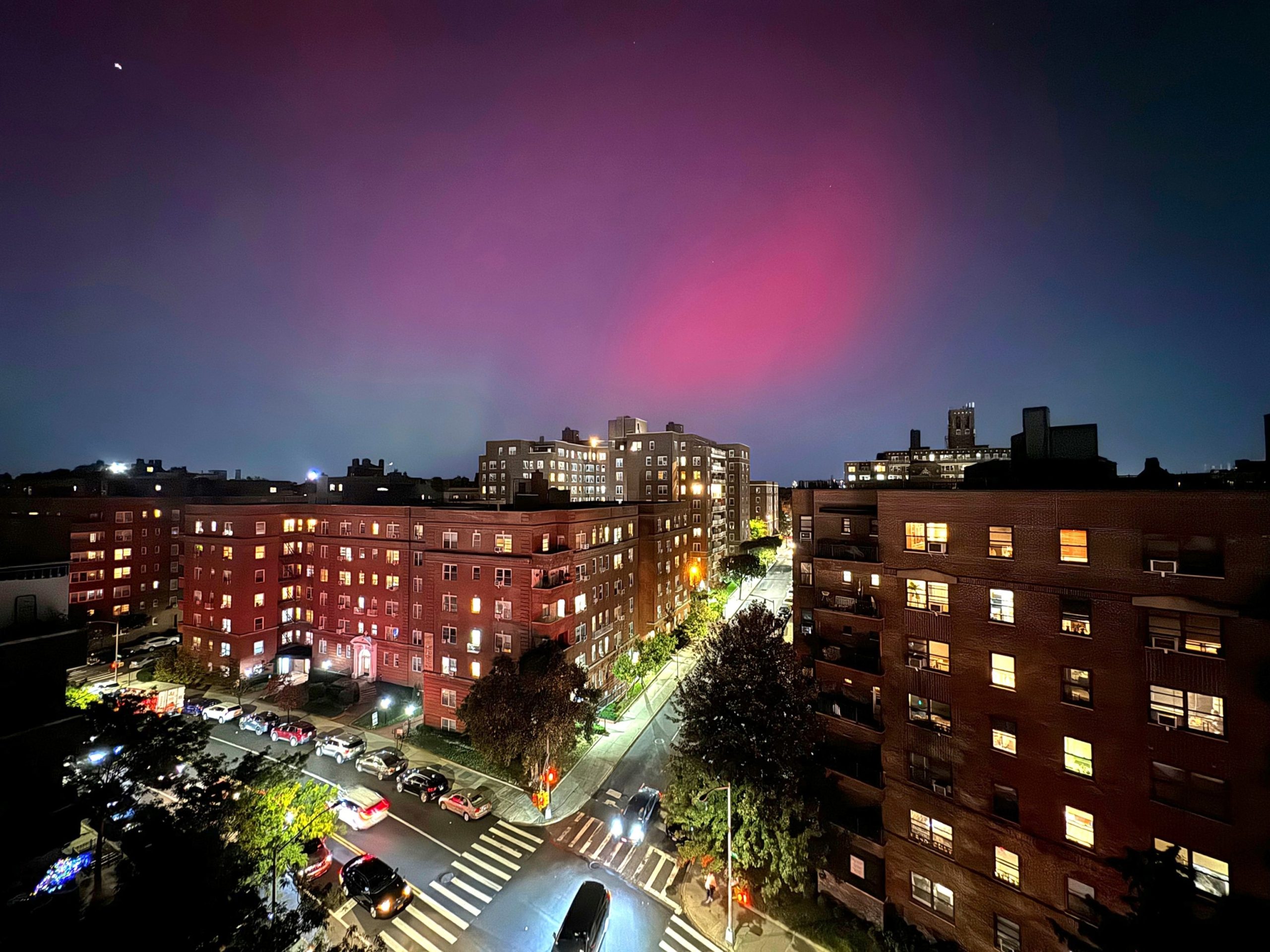Vice President Kamala Harris and Usha Vance, the wife of Republican vice presidential candidate JD Vance, have raised their profiles in the race for the White House, and their South Asian ancestry has been front and center during the 2024 campaign cycle.
Now, a new report from the advocacy group Stop AAPI Hate says it found that a rise in South Asian representation has coincided with anti-South Asian racism online.
Stop AAPI Hate, which collects data and research on anti-Asian hate, found that online threats of violence toward Asian communities reached their highest recent levels in August, when Harris was declared the presidential nominee at the Democratic National Convention and Vance appeared at the Republican National Convention.
“The preelection surge in anti-South Asian hate stems from a toxic political climate in which a growing number of leaders and far-right extremist voices continue to spew bigoted political rhetoric and disinformation,” said Cynthia Choi, co-founder of Stop AAPI Hate and co-executive director of Chinese for Affirmative Action, in a statement.

Usha Chilukuri Vance, left, and Vice President Kamala Harrris.
Getty Images/Reuters
The group, in collaboration with extremism research group Moonshot, recorded 973 reports of online threats of violence against Asians in August 2024 alone; at least 75% of those threats were directed at South Asian communities.
The data shows that reports of anti-South Asian slurs on social media doubled from around 23,000 in January 2023 to more than 46,000 in August 2024.
The online slurs and stereotypes used against the community mirror the language of offline attacks, Stop AAPI Hate states — including calls for South Asian residents to “go back” to their ancestral country.

In this March 27, 2021 file photo, a demonstrator holds a sign calling for a stop to hate against Asian Americans and Pacific Islanders (AAPI) during a national day of action against anti-Asian violence in Seattle.
Jason Redmond/AFP via Getty Images
“It’s clear that their hate-fueled rhetoric has sparked a wave of racism and discrimination against South Asian people ahead of the elections — but we cannot assume this hate will stop once the elections are over. In fact, we’re bracing for a further rise in hate to come,” said Choi.
FBI data also has shown anti-Asian hate crimes have not fallen to pre-pandemic levels amid inflammatory political rhetoric around the coronavirus.
Stop AAPI Hate warns that it could take months or years for data on in-person hate incidents to be collected and released by official agencies — so online spaces can act as a warning for what people may be facing in real time.
A recent report has shed light on the alarming increase in online hate towards the South Asian community, particularly targeting prominent figures such as Vice President Kamala Harris and Judge Usha Vance. The report, conducted by a leading research organization, analyzed online hate speech and discriminatory comments directed towards individuals of South Asian descent in the wake of Harris and Vance’s rise to prominence in the political and legal spheres.
Vice President Kamala Harris made history as the first woman, first Black woman, and first person of South Asian descent to hold the second highest office in the United States. Her groundbreaking achievement has inspired many within the South Asian community and beyond, but it has also sparked a wave of hateful rhetoric and xenophobic attacks online. Judge Usha Vance, who recently made history as the first South Asian American woman to serve on a federal appeals court, has also faced similar backlash and discrimination.
The report highlights the disturbing trend of online hate speech targeting individuals of South Asian descent, with a significant increase in derogatory comments, racial slurs, and threats of violence. The rise of social media platforms and online forums has provided a breeding ground for hate groups and individuals to spread their toxic ideologies and target marginalized communities.
The report also points to the intersectionality of discrimination faced by South Asian individuals, who often experience racism, xenophobia, and misogyny simultaneously. The combination of these factors has led to a sharp increase in online hate towards prominent figures like Harris and Vance, who are breaking barriers and challenging traditional power structures.
It is crucial for policymakers, tech companies, and civil society organizations to take action to address this alarming trend of online hate towards the South Asian community. Efforts must be made to combat hate speech, promote diversity and inclusion, and hold perpetrators of online harassment accountable for their actions.
In conclusion, the report serves as a stark reminder of the ongoing challenges faced by the South Asian community in the digital age. As individuals like Kamala Harris and Usha Vance continue to make history and pave the way for future generations, it is essential that we stand together against hate and discrimination in all its forms. Only through collective action and solidarity can we create a more inclusive and equitable society for all.



